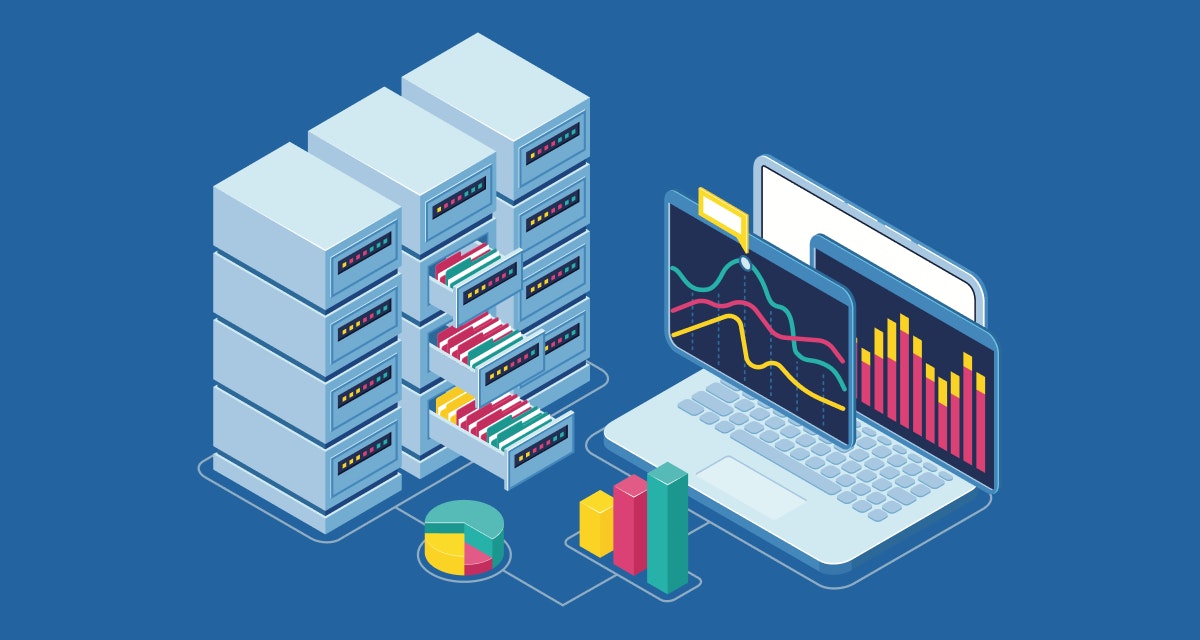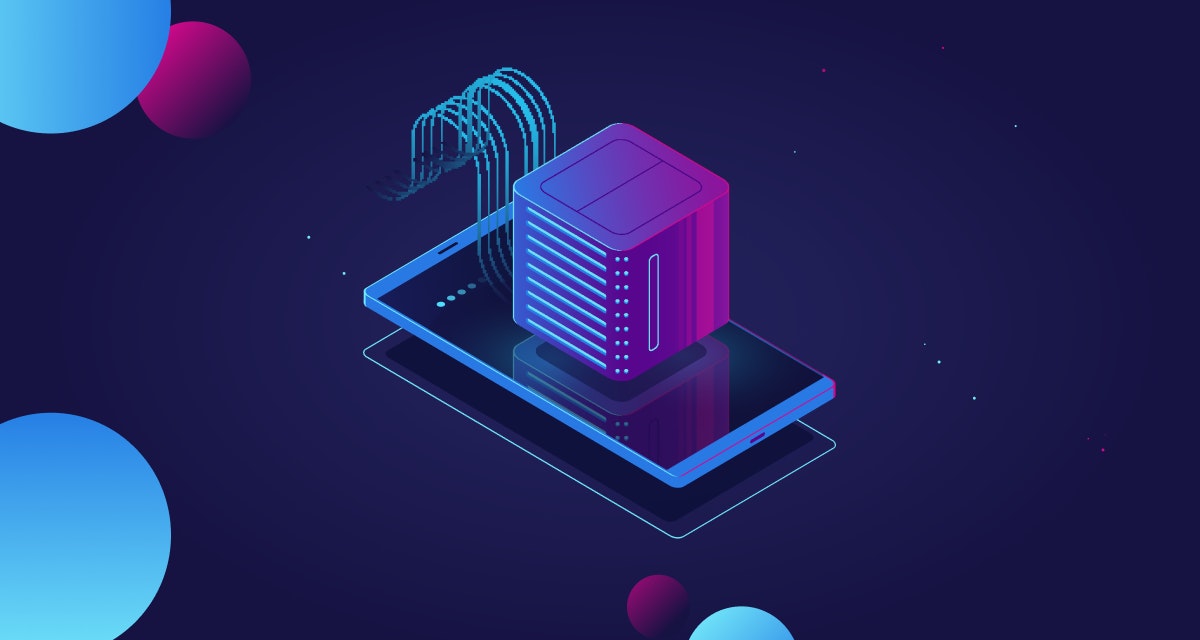Big data is on its way to exponential growth. Research shows that 70% of businesses already use big data in some form or the other. When the concept of big data was launched in 2005, no one knew it would become such a massive phenomenon.
There is a reason for the same: it can impact (and does) almost every aspect of a company. In fact, innovation and transformation are the main drivers of investment into big data and AI. Naturally, this excites many industries!
How different industries use big data
There are three industries that most actively use big data technologies: healthcare, financial services, and telecommunications. Do not be surprised when we tell you 87% of telecom companies benefit from big data, and leverage the technology to optimize prices and call centers, along with location-based device analysis.
Companies deploy the technology for algorithmic trading, location-based security analysis, and influencer analysis in the financial services sector. That is not it — healthcare organizations plan to expand their current big data usage with clinical research optimization (25%) and patient segmentation (31%), according to IDC.
Back to basics: What is small data?
Small data refers to data small enough for humans to comprehend both in terms of volume and format. It comprises usable chunks and includes bite-sized metrics. Accumulation of data happens at a much slower rate, and the flow of data is more stable and controlled.
Small data sources are mainly transaction systems, and all the data sets are stored on a high-end laptop or local servers. The key "action" words here are "organize," "connect," and "package" — and small data aims to ensure heightened accessibility and understandability.
On the other hand, big data refers to the data chunks that are too large and complicated to be analyzed and processed by traditional data-processing techniques.
Large volumes of data can be accumulated quickly, and the flow of data is usually uncontrollable because of the data volumes, variety of types, and velocity at which it is processed. Special big data companies store all the data sets on Hadoop or in external file systems. Moreover, data is distributed in different places.
In this article, we will explore 14 big data use cases in various domains that you should know about and learn from for your business in 2021:
1. 360-degree view of customers
Big data can help brands build dashboards that use data from multiple internal and external sources to provide a 360-degree picture of the customer. Some of the data that might be relevant include demographic information, names and addresses, location, household income, job profile, and so on.
Other relevant information includes the records of past conversations a customer has had with the company, be it through calls or emails or instant messaging, and data about the customer's browsing history on the company website and social media pages.
With advanced analytics, the dashboard can not only provide all of this information at a single glance but also make smart predictions about which products the customer is most likely to purchase or which behaviors could signal a move to a competitor's products — which will help the company take the appropriate actions to retain the customer.
That means if a customer shops both in physical and online stores, uses a mobile app to browse through the products, calls a call-center for support before making a purchase, they expect the company to recognize them on all channels and provide a seamless experience.
2. Data warehouse offload
An obvious application of big data lies in taking off some of the burdens from a company's data warehouse. Even those who have not invested in big data yet, have their data warehouses to support their business intelligence efforts.
However, these warehouses can be very costly to buy and maintain and are often not able to deliver the prompt and detailed reports that business leaders expect and demand.
In this regard, companies can opt for an open-source big data solution that provides faster results than a data warehouse while also bringing licensing fees down.
3. Optimized supply chain and logistics management
The Internet of Things has made it possible for manufacturing companies to improve operational efficiency through sensors and wearables.
For instance, forklift drivers or pickers at a warehouse can wear a smartwatch to calculate the time needed to pick the whole order, sort out the optimal route to pick up all the items for a certain order, and so on.
Moreover, big data technologies such as GPS and telemetry data have enabled delivery teams to identify optimal delivery routes based on real-time traffic and weather conditions. This is what Amazon is trying to do with their Anticipatory Shipping program.
Another thing that big data helps is demand forecasting and inventory management. For instance, for retailers, this means no out-of-stocks or no overstocks either in their brick-and-mortar stores or warehouses — and ensuring the perfect balance between the demand and supply.
4. Robust security intelligence
Big data analytics tools allow hackers and cyber-criminals to be thwarted well in advance of an actual breach. There is a large amount of log data generated from the day-to-day operations of an enterprise IT firm. External sources such as big data security agencies or law enforcement bodies can also provide cyber threat intelligence data.
Big data analytics tools can process all of this data, study user patterns, detect any anomalies in real-time, and set security protocols into motion.
5. Price optimization
Big data can help both B2B and B2C companies optimize the prices they charge from their customers. Analytics tools can assess historical market price data and identify the price points that have yielded the best results.
They can also use variable or dynamic pricing strategies to make smart predictions about how much different customer categories would be willing to pay under different conditions. This helps with customer segmentation and allows the company to offer different deals to each customer slab.
6. Higher operational efficiency
Big data analytics helps a company identify ways to maximize its profits and streamline its overall operations. While analysts have been working on periodic business reports for a while now, big data can make this process more sophisticated by allowing real-time reports from multiple data sources to be drawn up with a few clicks.
These reports allow for granular insights, such as how much a store has sold off a new product within the first few hours of its launch, and helps the company take immediate corrective measures to nip potential problem areas in the bud.
7. Effective recommendation engines
Brands such as Netflix or Amazon run on recommendation engines that show products similar to what the customer has browsed or purchased in the past.
Of course, these recommendations are powered by big data analytics that keeps track of historical buying and browsing data. Such recommendations are so common that customers now expect them any time they are browsing an online retailer.
Companies that do not invest in recommendation engines might lose out on valuable cross-selling or up-selling opportunities.
8. Social media analysis and response
Millions of posts and stories are shared on social media channels every day — all of which are valuable data points. Companies that do not keep careful tabs on what customers are saying about them on social media could miss out on opportunities to respond to grievances or provide customized service — which means potentially losing customers.
Big data can help with this by monitoring social media platforms in real-time and analyzing customer sentiment to help companies react appropriately.
9. Enhanced in-store experience
Big data can be used to improve the customer's in-store shopping experience. Data from store cameras, mobile apps, and geolocations can be used to make changes in the way products are displayed, the color and theme of the store layout, the ease of check-out, and other aspects that can prompt more purchases.
10. Preventive maintenance and support
IoT does not just relate to electronics or wearables. Industrial equipment for sectors such as agriculture, manufacturing, automotive, transportation, construction, and so on are now connected.
That makes them more vulnerable to cyber-attacks and malware. Therefore, companies in these sectors can benefit from big data insights and improve their equipment maintenance relatively easily.
For instance, data collected from sensors can monitor how the equipment performs and send out instant alerts in case of any anomalies or breakdowns. This can help the company perform preventive maintenance and avoid costly shutdowns or cyber-attacks.
Besides, big data analytics can keep tabs on factors like engine temperature, error messages, sensor data, fuel usage, and so on to detect any internal wear and tear and thus allow for prompt repairs.
11. Better healthcare
The healthcare industry is increasingly recognizing the importance of big data in detecting illnesses early on and recommending personalized treatments.
Algorithms are being developed to map a patient's symptoms to millions of data points and prescribe the most appropriate treatment for their age, pre-existing conditions, and medical history.
This can save significantly on the cost of treatment by reducing the number of physical tests that need to be performed on a patient and also save the time required to diagnose a disease.
Big data analytics can also identify any genes or biomarkers that put patients at higher risk for certain diseases in the future and thus allow doctors to take pre-emptive treatment measures — while saving more lives.
12. Smarter recruitment
When it comes to quickly finding the right candidates for a job, merely matching resume keywords with a job description is no longer enough. This is where big data analytics can speed things up.
With the right tools, recruiters can mine data from multiple sources and obtain a 360-degree view of a candidate, including qualifications, job history, skill sets, behavioral traits, social media activity, and so on, and then compare this with the company's hiring data and previous successful candidates to find the ideal match.
Big data can also help recruiters be more proactive by suggesting new positions in advance to meet emerging needs.
13. Efficient online publishing
For online publishing brands, serving their readers with relevant content is crucial in building their subscriber base and enhancing their domain authority — primarily when different content types are being published online.
Big data analytics can clean up and enrich the content metadata so that readers can easily find the most relevant content and stay engaged — which is the need of the hour for all publishers worldwide.
Then, predictive analytics and machine learning can be used to test reader preferences and maximize search accuracy rates to present the site content in a manner that shows the reader's favorite pieces at the top.
This will encourage readers to continue browsing related articles and increase subscription rates, thus enabling publishers to drive higher revenues and build a loyal customer base for the long haul. Everyone wins!
14. Fraud prevention
Well before big data analytics gained popularity, credit card companies were using ruled-based systems to catch and prevent fraudulent transactions.
Today, sophisticated analytics tools are extremely good at catching fraudulent activity rather than false positives. For instance, if a credit card is registered to a female resident in New York but is used to rent a motorbike in San Francisco, the card company would earlier have called the customer to check that she's the one using it.
But a more modern system would also be able to check that the customer had recently purchased airline tickets and summer clothing, which means that she would more likely be the one renting the motorbike.
Other big data applications in fraud prevention include keeping track of which geographical locations are the likeliest to witness criminal activity.
Summing it up
Thanks to big data, companies can offer a more targeted and relevant experience to customers worldwide. That is because the former can collect and process massive amounts of data and cater to the customers' specific needs.
We are primarily known for building breakthrough mobile apps that integrate big data, cloud, and IoT. If you want your business to power up using data, then without a doubt, leveraging big data is the way to go about it. We at Intuz. are always eager to entertain projects that help our clients in smartening up.


